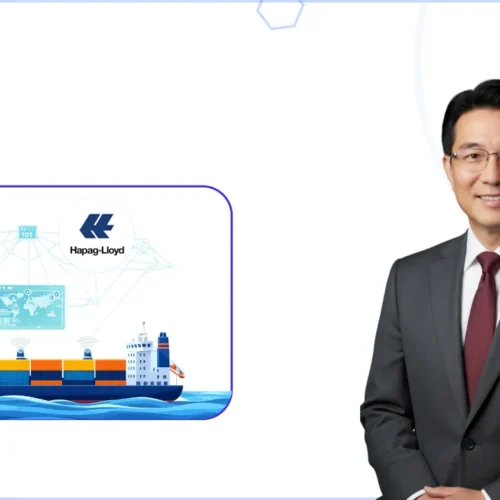Sale orders are the foundation of any logistics operation, serving as the guiding document for the whole order-to-fulfillment process. A sale order is more than a transaction to CargoWise users, it’s a valuable tool for managing client needs, optimizing workflows, and ensuring operational efficiency. Businesses may improve their sales order processes by utilizing CargoWise’s capabilities and integrating modern automation technologies like Robotic Process Automation (RPA), making them faster, more accurate, and customer-centric.
Understanding Sale Orders in CargoWise
A sale order is a formal document that confirms a customer’s purchase of products or services. It serves as the foundation for managing and tracking an order’s lifetime within the CargoWise ecosystem. Usually, a sale order consists of:
- Product Details: Specifications, quantities, and descriptions of the items being purchased.
- Pricing Information: Itemized costs, applicable discounts, and taxes.
- Shipping Instructions: Delivery addresses, preferred carriers, and estimated arrival times.
- Order Status: Real-time updates on processing, shipping, and delivery milestones.
What distinguishes CargoWise is its ability to easily combine sale orders with other essential business processes like inventory management, shipping tracking, and invoicing. This connection breaks down barriers, assures data accuracy, and improves department-wide collaboration.
Why Are Sale Orders Important for Logistics Businesses?
Sale orders are the bridge between customer expectations and operational execution.
Customer Satisfaction: Accurate and timely sale orders ensure that customers receive what they ordered when they expect it, enhancing trust and loyalty.
Operational Efficiency: By serving as a centralized document, sale orders simplify workflows and reduce the risk of errors.
Revenue Tracking: Sale orders provide a clear record of transactions, aiding in financial reporting and performance analysis.
Compliance: For international shipments, sale orders often contain details required for customs clearance and regulatory compliance.
However, manually managing sale orders can lead to inefficiencies, delays, and inaccuracies. This is where automation comes in.
The Role of RPA in Transforming Sale Orders Processes
Robotic Process Automation (RPA) is an exciting changer for logistics companies that use CargoWise. By automating repeated procedures, RPA lowers manual effort, and errors, and speeds up processes. Here’s how it transforms sales order management.
1. Automated Order Entry
RPA collects data from a variety of sources, including emails, internet portals, and CRMs, and automatically populates sale orders in CargoWise. This reduces the need for manual data entry, which improves accuracy and saves time.
2. Real-Time Order Validation
Once a sale order is created, RPA can cross-check details like product availability, pricing, and shipping preferences against your database. Any discrepancies are flagged for review, reducing the risk of processing incorrect orders.
3. Seamless Multi-Channel Integration
CargoWise RPA service helps firms manage orders across many sales channels by consolidating data into a single workflow. All sale orders are processed consistently, regardless of whether they are through an e-commerce platform, a customer portal, or manual entry.
4. Instant Status Updates
RPA automates CargoWise status updates, allowing teams and customers to have real-time visibility. This transparency improves communication and allows for quicker decision-making.
5. End-to-End Workflow Automation
From order creation to invoice generation, RPA automates the entire process. Integration with warehouse management and logistics systems ensures that orders flow smoothly through each stage, from picking and packing to shipping and payment.
Key Benefits of RPA for Sale Orders in CargoWise
1. Improved Accuracy
Inaccurate shipments, delays, and dissatisfied customers might result from manual data entry’s high error rate. By automating the data entry and validation process, RPA removes these risks and guarantees that every sale order is correct from the beginning.
2. Faster Processing Times
RPA enables sale orders to be processed in minutes rather than hours. This speed minimizes lead times, allowing firms to fulfil orders faster and increase overall operational efficiency.
3. Enhanced Customer Experience
Customers have a better experience when they get real-time updates and quicker responses. When clients are kept informed and their orders arrive on schedule, it fosters trust and encourages customers to return.
4. Scalability
As your company expands, so will the volume of sale orders. RPA can handle higher workloads without the need for more employees, making it a cost-effective approach for scaling operations.
5. Compliance and Reporting
RPA guarantees that the required information for compliance is accurately captured and documented. Furthermore, it makes reporting easier by providing real-time insights into order trends, customer preferences, and performance indicators.
Conclusion
Sale orders are a vital component of logistics operations, and CargoWise offers a powerful platform for managing them successfully. However, implementing RPA elevates sales order management by automating operations, improving accuracy, and increasing customer happiness.
Are you ready to improve your sale orders process in CargoWise? Our skilled staff can assist you in implementing RPA solutions that are specifically adapted to your CargoWise operations, assuring faster processing times, error-free entries, and scalable expansion. Contact us today to learn more!






